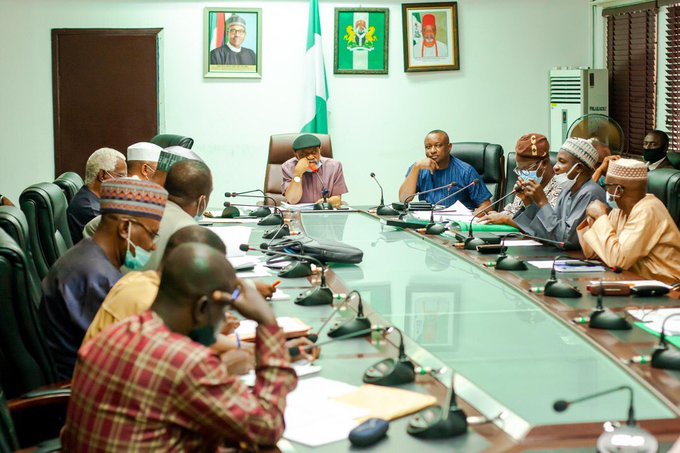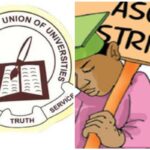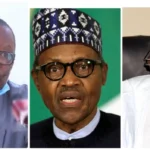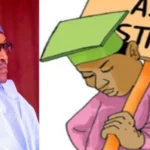The new twist came barely a day after the government said the National Industrial Court (NIC) injunction ordering varsity teachers back to the classrooms would not affect negotiations with the union.
‘It’s a declaration of war’, ASUU kicks over court order
The government threatening to withdraw the union’s CoR because of its alleged failure to submit the financial reports of its audited account as required by law in the last five years.
It was learnt that the government, through the Registrar of Trade Unions, has issued a query to the union on why its CoR should not be withdrawn for running against the law.
Labour and Employment Minister Dr. Chris Ngige confirmed the development while hosting the leadership of the Nigerian Association of Medical and Dental Academics (NAMDA) at work on Wednesday night.
The minister had referred the matter to the NIC, following a breakdown of negotiations between the striking varsity teachers and the Federal Ministry of Education; their primary employer.
Despite series of meetings chaired by Education Minister Adamu Adamu, both parties failed to reach an agreement.
Ngige said the university based – unions were in the habit of not obeying the law that set them up, with regard to the submission of their yearly audited account.
The minister said he has asked the Registrar of the Trade Unions not to allow the hammer of the law to descend on ASUU because of the prolonged strike as any action taken by the government would be wrongly interpreted.
He noted that going by the provisions of the law, the leadership of the university based unions that collect check-off dues from their members were mandated to render an account on how the money was spent.
But ASUU President Prof Emmanuel Osodeke described the planned move to de-register ASUU as a trade union as an attempt by the minister to blackmail the university lecturers back to work.
The ASUU boss urged President Muhammadu Buhari administration to investigate how the minister has used the ASUU strike to undermine the government and the interest of students.
Ngige alleged: “ASUU has not responded to the relevant Section of Trade Union Creation for submission of audited accounts. How do they utilise their money?
“The money they collect as check-off dues, should be accounted for. So, the Trade Union Act says that in June of any given year, unions should produce audited accounts at the Federal Ministry of Labour and Employment.
Speaking of the ASUU strike, Ngige said: “You went on strike. The Minister of Labour brought you here one week after and we discussed seven items one after the other and agreed on five of the items.
“The two items we couldn’t reach agreement on are the usage of UTAS; we asked NITDA to go back and test. We met with the traditional rulers, Sultan and NIREC and asked NITDA to give us a report in six weeks.
“We asked them to go to Education Ministry to negotiate their conditions of service, which is the only thing outstanding in the renegotiation of the 2009 Agreement.
“When you say the government is not implementing the 2009 Agreement, it is not true. It was in the renegotiation of 2009 in 2013 that President Jonathan and his team agreed to pay you N1.3 trillion – N220b every year for six years. Maybe because they knew they were going away. But that was what they agreed on.
“By 2019, we had reconciled here again. But, we said this government is unable to meet your demand. What do we do? We structured a payment plan for one single tranche of N220 billion.
“This government started paying. They have paid N50 billion or so. I am not sure, but we asked them to go and reconcile the figures from the Budget Office and ASUU. When they say the 2009 agreement, the public is deceived. It is the 2009 revitalisation of the government of Goodluck Jonathan we couldn’t pay. It is not wrong for the government to say it is unable to pay.
“Let us restructure our debt or our promise to you. It was an agreement. A Collective Bargaining Agreement can be renegotiated anytime. That is where we are.
“Another thing to be renegotiated was their conditions of service, to include salaries scale, which is the CONUASS. We referred that one back to the Education Ministry, their primary employer.
The ministry (Education) invited Chairmen of Councils, with Prof. Mini Briggs to chair the renegotiation committee. What also will guide that negotiation is the availability of the fund and by extension, the ability to pay, which is the ILO principle in wage fixing mechanism.
“It is not enough to say I will give you N1.3 trillion and not pay it. That is why the negotiation went on and different proposals were made. Those proposals are now the subject of contention. When the committee on education gave them a proposal on what they can pay, they did not do enough consultation with the government.







